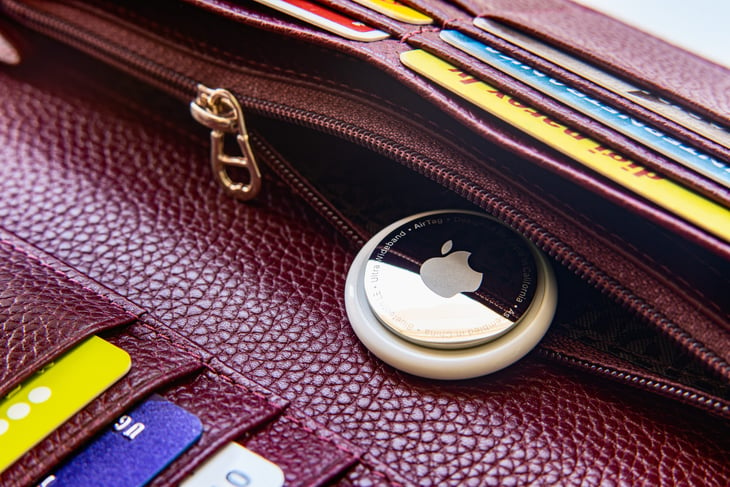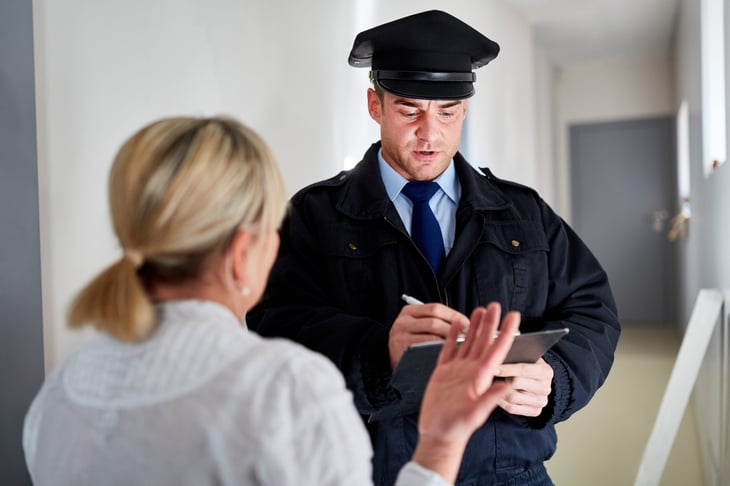
Phones contain a lot of personal data these days, including possible access to financial accounts. They can also be used to make mobile payments. Plus, they’re expensive to buy in the first place.
For all these reasons, you should take every precaution for your phone against loss or theft.
Here’s what you need to know about protecting your phone before and after it leaves your possession.
1. Enable the device finder on your phone

The first thing to do when you get a new phone is to enable the device finder. Make sure you understand how that works with the type of phone or operating system you have.
Samsung has its SmartThings Find that allows you to keep track of your Galaxy devices—including your phone. Apple’s Find My app will track your devices even when they’re offline. And, if you have an Android device, make sure you get Find My Device for your phone.
Test to make sure these services are working properly so you that you can look up your device in case it’s lost or stolen.
2. Consider using a tracking product on your phone

As a backup to a finder app, you can also put a physical tracking device on your phone. Both Tile and AirTag are good choices. Depending on the product you choose, you might be able to print out lost and found labels, get a small sticker or use some other method. Figure out what would work best for you and use that as a way to find lost or stolen devices.
3. Regularly back up your phone

If you’re worried about losing important pictures, files and other items, make sure you back up your phone regularly.
For example, with the iPhone, you can back up your phone using iCloud. It’s also possible to automatically back up your Android phone using Google’s cloud system. Samung also has its own cloud backup so that can make a difference, too, allowing you to restore what was on your phone to another device later.
No matter what happens, if you lose or have your phone stolen, having a backup can help you restore the most important data.
4. Boost your security settings

To make it harder for someone to get into your phone after stealing it, consider boosting your security settings. One thing you can do is set up an account with whatever device you have. Samsung, Apple and Google all have ways to set up accounts and use them remotely.
You can also go into your security and privacy menu on your phone and see what options are available. Turn on the available choices that are likely to make it harder for someone else to tamper with your phone.
5. Wipe your phone

If you’ve confirmed that your phone is gone for good—either lost or stolen—it’s time to wipe it. In most cases, you can only use a remote erase feature with your phone if you’ve set up the device finder. That’s why it’s so important to set up the device finder ASAP.
Wiping a phone reduces the chance that there will be anything important (like access to financial accounts) on your phone if a thief breaks in. Northern Michigan University has a handy guide to wiping iOS, Android and Windows 8 phones, and Samsung has its own tutorial.
6. Report the theft

When you confirm that your phone was likely stolen, make sure you report it to the authorities. Fill out a report. Even if the phone isn’t recovered, having that police report is important. If someone uses information on your phone to access financial accounts, having a police report can help you in the recovery process later. Additionally, if fraud does take place, report that fraud to the Federal Trade Commission.
7. Watch your accounts

Finally, be on the lookout for fraudulent activity. Even if you’ve taken all the other steps, you might still be a victim of fraud. Keep an eye out and report fraud to your financial institution immediately. Additionally, if your phone included a credit card wallet, you’ll have to take steps to cancel your cards and get new cards issued.





Add a Comment
Our Policy: We welcome relevant and respectful comments in order to foster healthy and informative discussions. All other comments may be removed. Comments with links are automatically held for moderation.